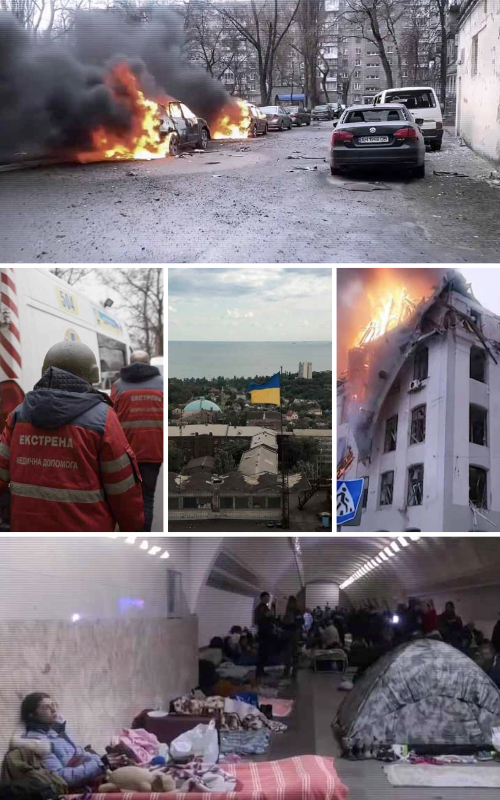 20 DAYS IN MARIUPOL, Ukraine, 2023. Directed by Mstyslav Chernov. 95 minutes. Rated MA (Strong themes)
20 DAYS IN MARIUPOL, Ukraine, 2023. Directed by Mstyslav Chernov. 95 minutes. Rated MA (Strong themes)
A significant documentary for its time and for the future in any assessment of Russia’s invasion of Ukraine in 2022, and its subsequent history. This documentary has won several awards and is a nominee for the Academy Award for Best Documentary. Mstyslav Chernov is a celebrated Ukrainian photojournalist, committed to peace causes. (It is worth checking his Wikipedia entry especially to see the number of awards, and their wide range, that he has received while still in his 30s, including the Pulitzer Prize.)
He was in the southern coast city of Mariupol on 24 February 2022 when Vladimir Putin made a press announcement (seen in this documentary) announcing a special operations in Ukraine, attributing aggression to Ukraine. However, this was a follow-up to the invasion of Crimea in 2014 and its annexation and Russia’s territorial ambitions – with memories of interactions between Russia and Ukraine in previous centuries as well as Stalin’s treatment of Ukraine in the 1930s famine.
The director was reporting for American PBS channel’s Frontline program. This documentary, covers the almost three weeks that the director was in the city before leaving to take his footage to be available for the wider world. His catching up with the Red Cross convoy was edited into this feature documentary and released, screening at the Sundance Festival, a month before the first anniversary of the Russian invasion.
In Australia, the Oscar-nominated film became available just after the second anniversary of the invasion – and the uncertainties about the future of the conflict. While the language of the film is all about those three weeks in 2022, audiences in 2023 watched it in the retrospect of one year of the war. With the second anniversary of the war in 2024, the war has lasted 730 days.
So, audiences, including those influenced by the Oscar nomination, are watching the events two years later. Which, of course, in no way diminishes the horror, the violence, the atrocities, the sufferings and death, family bereavements, the pressures on doctors and nurses, bombardments, lack of resources, hunger . . . And the thousands who left the city.
And, for those watching the film in 2024, there is also the experience of making comparisons with the war in Gaza, the experience of the Palestinians from the Israeli invasion and bombardments following the Hamas brutal attack. There is the parallels of doctors and nurses, the lack of means, the many deaths and injuries, and the sadness of the bereaved, as well as the bewilderment of the survivors.
This is painful watching even for those comfortably observing from afar. This is a kind of necessary documentation that needs to be kept and often watched lest we forget. The director and his associates spent a lot of time in the hospitals, documenting the work of the doctors and nurses, the difficulties, and filming out in the streets, significantly the filming of pregnant women, the babies, the children, the deaths and the grief-stricken parents. The director trying to track down the pregnant woman in the bombed streets and finding she had died. The father mourning the death of his son, 16-year-old, playing soccer when the bombs fell.
The accusations against the Russians with the bombing and the arrival of the tanks and bombardments are strong, condemning the seemingly targeted attack on civilians – denied by the Russians, spokespersons on Russian television, officials at international meetings, as well as the Russians insisting that so many of the scenes in those 20 days at Mariupol were movie sets with actors performing.
That was in the first three weeks of the war. In the ensuing months and years, there have still been denials, but the evidence is clear, the importance of photojournalists, filmmakers, photographing and recording on the spot so that evidence is not lost but finds its place in asking for empathy from the world, but also providing material for judgement and condemnation.
Docplay
Released 4 March